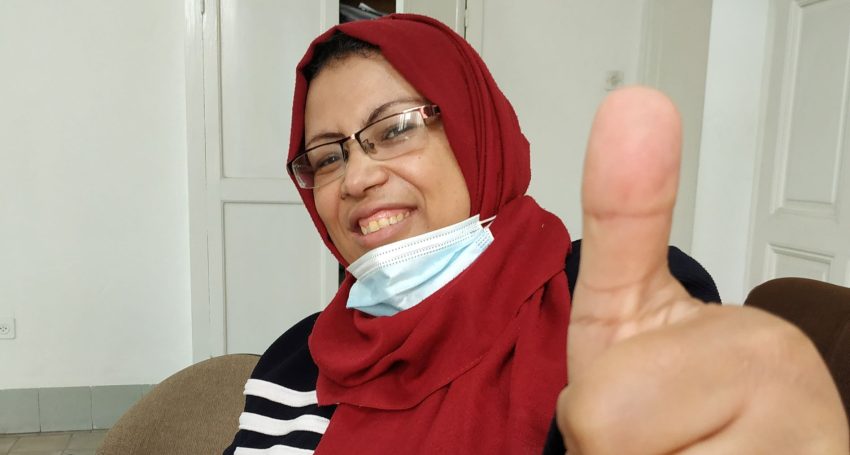Lighting the world of women in Gaza
Features
Anglican Overseas Aid’s (AOA) partner in Gaza, the Ahli Arab Hospital, is prioritising the health of women, like Amal, who often feel like they are living in darkness

It is often said that it is darkest just before the dawn. Times have often been dark for the whole world over the past two years, as COVID-19 has upended the lives of millions of people.
During these difficult days, we can easily feel overwhelmed by life. We can feel anxious, unsure and insecure. These are all normal feelings. In the midst of this, light brings hope. Light is a sign pointing to something better and beyond. The great Christian hope is that God-in-Christ has come into the world, beginning a process of making all things new. This is what we celebrate at Christmas. Light has come into the world and the darkness has not overcome it.
Advertisement
The Palestinians of Gaza experience darkness in the same part of the world that Jesus was born all those years ago. Living in the third-most densely populated region in the world, with electricity on for only six to eight hours per day and 95 per cent of the water undrinkable, makes for an extraordinarily difficult existence. Like in the times of Jesus, the people of Gaza are experiencing the heavy yoke of living under a dominant force. Since 2007, the Palestinians of Gaza have lived in what is often described as “the world’s largest open-air prison”, as their land, sea and air remain illegally blockaded by the state of Israel. The blockade constrains the movement of Palestinians outside of Gaza, impeding their access to basic necessities like healthcare.
The Palestinians of Gaza experienced further devastation and loss of life when fighting broke out again in the region earlier this year. Anglican Overseas Aid’s partner in Gaza, the Anglican-owned Ahli Arab Hospital, faced significant challenges as they worked to treat the many casualties of the escalating violence and rocket attacks at the hands of one of the world’s most powerful militaries.
Even with these often overwhelming obstacles, the Ahli Arab Hospital team display amazing resilience. They provide light in the darkness, genuinely believing their troubles will one day come to an end and that peace will reign.
Advertisement
Despite the challenges, the dedicated medical team continue to support women who have breast cancer. For women facing the possibility of a cancer diagnosis, the Ahli Arab team are a beacon of light, helping them access early screening and supporting them with the psychological distress and the prognosis if they have the disease.
One of these women is Amal. She is 38 years old, with two children aged 4 and 2, living in a refugee camp in Gaza. After she felt a lump on her breast, she sought a mammography at the Ahli Arab Hospital upon a relative’s suggestion. The lump revealed cancer.
Despite her diagnosis, Amal’s attitude keeps her going.
“I remain positive in my breast cancer journey with all of its challenges ahead,” she said.
Amal’s story highlights the successes of the Women’s Health and Wellbeing Program at the hospital.
She adds that, “The care I receive from Ahli Arab Hospital is professional and timely. I am also very thankful for the continued outreach of the breast screening program at the hospital.”
Inspired by Jesus, Anglican Overseas Aid’s work in Gaza exists to shine a light in the darkness of the impact that breast cancer has on many women and their families. AOA wants people to live lives that are full and flourishing.
You can donate to Anglican Overseas Aid’s ‘Light Their World’ Christmas Appeal by visiting the AOA website, calling 1800 249 880 or sending a cheque made payable to Anglican Overseas Aid to:
Anglican Overseas Aid
PO Box 389
Abbotsford, VIC 3067





